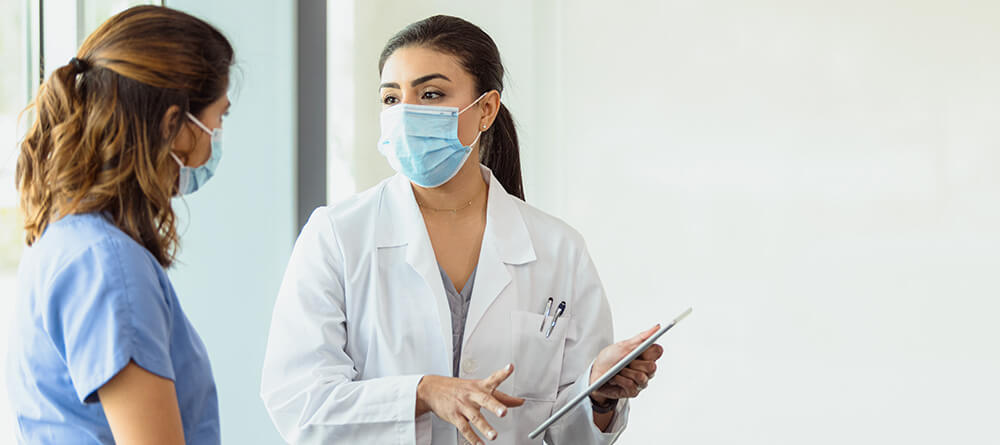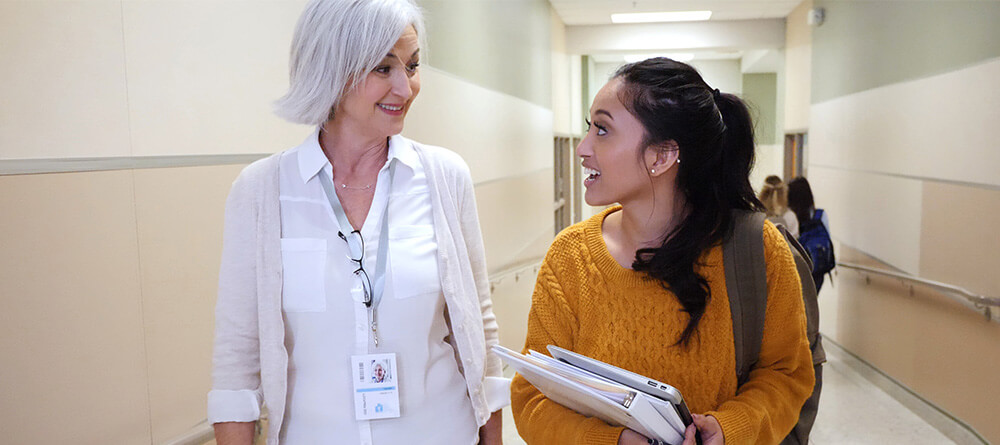No matter how long you’ve been planning to become a physician, the process of completing your medical school applications can still be riddled with insecurities. Many pre-med students are nagged by the question,“Will I get into medical school?”
The admissions process forDoctor of Medicine (MD) programs can be pretty nuanced, so it’s hard to predict whether you’ll receive an acceptance letter. But you can understand your chances of getting into medical school a little better by evaluating your academic profile and devising a smart application strategy.
Read on to learn more about the elements of your medical school applications that you should be focusing on.

What are my chances of getting into medical school? 6 factors to consider
There’s a lot that goes into assembling your medical school application materials. We spoke with two experts who say focusing on these six crucial components could help improve your chances of getting into medical school.
1. Your academic metrics
While there isn’t necessarily a GPA or MCAT score that will ensure your acceptance to medical school, you can get a good sense of where you stand by being aware of the averages. TheAssociation of American Medical Colleges (AAMC) reports that students who were accepted into medical school for the 2021–2022 school year had a 3.59 average GPA and an average MCAT score of 505.9.
It should come as no surprise that medical schools have high standards. “This expectation is so that the schools can be sure that a student will be able to perform the academic workload required of medical school,” explains Dr. Deborah Gutman, emergency physician and founder ofAdmissionsRx.
If you fall well below either the average GPA or MCAT score, you might need to take some steps to improve your odds of getting into medical school. A low GPA could require some additional coursework, and you may find it valuable to retake the MCAT—only this time with a new approach.
“What really makes it worthwhile to retake the MCAT is if you know that you’re going to do something differently,” notes Dr. Daniel Southren, pain management physician and founder ofAtlas Admissions. Whether it’s deploying adifferent study technique, working with a tutor, or taking advantage of practice exams, taking the exam again with a renewed focus may be beneficial.
2. The amount and quality of your clinical experience
Gaining exposure to the clinical side of practicing medicine is essential for medical school applicants. No program expects students to come in knowing how to practice medicine, but seeking out opportunities likeshadowing physicians can help pre-med students gain firsthand experience of what it’s like to work in the field.
“I think a lot of medical schools just want to make sure that you understand exactly what you’re getting into,” Dr. Southren explains. Theroad to becoming a doctor is long and arduous, and it takes a considerable amount of commitment.
“Medical schools will take pause when an applicant does not have a clear perspective, based on clinical experiences, of what it means to be a physician,” Dr. Gutman adds.

3. Your involvement in other relevant activities
Clinical exposure, while important, is just one factor in making up a strong application. Admissions committees also consider a student’s research experience, volunteer work, and more. Even activities that have little to do with medicine can play a role—things like sports and music.
“Anything that could expose how you work in teams, how you would be as a future leader, and even how you are from a creative standpoint can come together to show how you would make a good physician in the future,” Dr. Southren explains.
This is about more than simply checking items off a list to boost your chances of getting into medical school. MD programs look at your involvement in various activities in terms of how it has helped you develop as an individual.
“A person with hobbies and interests across multiple disciplines or realms is a more interesting candidate and likely a person who will be able to relate to a wider range of people,” Dr. Gutman explains. If you list a hobby or interest, be prepared to have a conversation about them at the interview. You may even be asked to “teach me something about your hobby.”
4. The quality of your personal statement and letters of recommendation
Yourcurriculum vitae will cover your academic qualifications and any relevant experience you may have, but yourpersonal statement is one of the best opportunities to explain that you know what being a doctor entails and express why you want to pursue the profession.
Dr. Southren suggests sharing personal anecdotes, but avoid the types of stories that admissions committees have likely heard hundreds of times. “Use anecdotes that are more specific to you and expand on those stories in a deeper way that might expose your true underlying motivations,” he offers.
Another way MD programs get a sense of the potential of medical school applicants is by reviewingletters of recommendation. These will be the only component of your application that includes others’ opinions of you, and that matters significantly. Your letter writers—physicians or professors who know you well—can speak to the qualifications and characteristics that demonstrate your preparedness for medical training.

5. The logistics of submitting your application
There’s a lot to keep track of when applying to medical school. For most students, it’s helpful to work with some sort of advisor. It’s always best to start with whatever free advising services your undergraduate institution provides. Students who don’t have access to a pre-med advisor can seek out the assistance of an independent consultant.
“An advisor can help answer the hundreds of little questions that come up along the way and also serve as a sounding board for how students can present themselves in the most authentic light,” Dr. Gutman says.
With some guidance to help you stay on track, you can focus more on getting everything ready to submit on time. Believe it or not, timing can actually play a sizeable role in your odds of getting into medical school. Programs extend interview offers on a rolling basis, which means it’s in your best interest to apply early.
“It’s well known that the number of interview spots decreases dramatically as you get past the initial summer months,” Dr. Southren points out, adding that it’s smartest to submit when applications open in June.
You’ll also want to be strategic by applying to the right mix of schools. This is another area where your advisor can step in to help you craft your final list. Dr. Gutman suggests applying to roughly 15 programs, but the quantity itself isn’t the most important factor.
“Like most things, it is not about the number of the programs as much as it is about picking the right programs for your list,” she explains. For example, Dr. Gutman notes that it doesn’t make sense to apply to programs that emphasize research if you don’t have a vested interest in it.
6. The strength of your interview
Receiving interview invitations after you submit your medical school applications is an exciting accomplishment—programs only extend these offers to candidates they are heavily considering for admittance. That said, you can’t expect to coast through them.
“It’s important to realize that once you’re in that interview phase, things sort of reset in terms of the overall application,” Dr. Southren says.
What he means is that you made the “first cut” and that everyone who comes for an interview is more or less on even ground, so it’s critical that you continue to put your best foot forward. The interview offers an opportunity for dynamic interaction and assessment. You can prepare by familiarizing yourself with thetypes of questions interviewers ask and working with classmates, mentors, or your pre-med advisor to help conduct practice interviews.
Prepare for your future as a physician
If you know you have what it takes to succeed as a doctor, then a lot of hard work and some smart planning can take you a long way. As you ask yourself “Will I get into medical school?” during the application process, be sure to remember these six crucial elements of your medical school applications to help you achieve your goal.
It can feel like there are a lot of factors outside your control when it comes to your chances of getting into medical school, but how you present yourself during your interviews is something you can actively prepare for. Learn more about how you can get ready for these important conversations by reviewing our article“How to Prepare for Medical School Interviews: 5 Steps for Success.”
*This article was originally published in 2019. It has since been updated to include information relevant to 2022.


